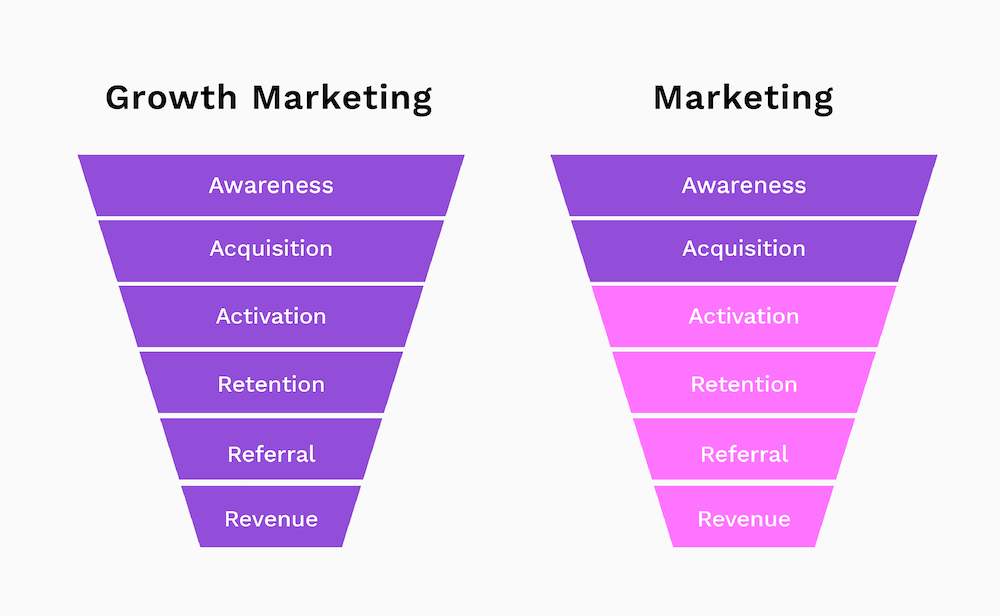The term growth marketing has become a buzzword in the job market, often used to attract ambitious professionals seeking dynamic roles. However, not all positions labeled as such deliver on their promises. Many job postings for growth marketing roles are vague, overly broad, or misaligned with the actual responsibilities they entail. This can lead to frustration, burnout, and a mismatch between expectations and reality. Before applying, it’s crucial to critically evaluate whether the role truly aligns with your skills, career goals, and the company’s objectives. This article explores why some growth marketing jobs may not be worth pursuing and how to identify red flags in these listings.
https://youtube.com/watch?v=M3LDp1KjCto
See Also In Your Opinion, What Are Some of the Best Gaming Marketing Campaigns?
In Your Opinion, What Are Some of the Best Gaming Marketing Campaigns?Why You Should Avoid Applying for Jobs Labeled as Growth Marketing
1. Misalignment of Expectations
Many companies use the term growth marketing to attract talent, but the role often lacks clarity. Employers may expect you to handle everything from SEO to paid advertising, content creation, and even data analysis. This can lead to burnout and frustration, as the job scope is often too broad and undefined.
| Expectation | Reality |
|---|---|
| Focused on growth strategies | Handling multiple unrelated tasks |
| Clear career progression | Unclear job responsibilities |
2. High Pressure with Limited Resources
Growth marketing roles often come with high expectations to deliver quick results. However, companies may not provide the necessary tools, budget, or team support. This creates a high-pressure environment where success is difficult to achieve, leading to stress and dissatisfaction.
See Also What Are Some of the Best Guerrilla Marketing Campaigns You've Ever Seen?
What Are Some of the Best Guerrilla Marketing Campaigns You've Ever Seen?| Challenge | Impact |
|---|---|
| Limited budget | Difficulty in executing campaigns |
| Lack of team support | Increased workload and stress |
3. Lack of Specialization
Growth marketing roles often require you to be a jack-of-all-trades, which can hinder your ability to specialize in a specific area. This lack of focus may limit your career growth and make it harder to stand out in a competitive job market.
| Skill | Impact on Career |
|---|---|
| Broad skill set | Difficulty in mastering one area |
| Lack of specialization | Reduced marketability |
4. Unrealistic Growth Targets
Companies hiring for growth marketing roles often set unrealistic targets for user acquisition, revenue growth, or market expansion. These targets may not align with the company's current stage or resources, making it nearly impossible to meet expectations.
See Also Gen Z Broke the Marketing Funnel
Gen Z Broke the Marketing Funnel| Target | Feasibility |
|---|---|
| Double user base in 3 months | Unrealistic without proper resources |
| Increase revenue by 200% | Highly unlikely in a saturated market |
5. High Turnover Rates
Due to the high pressure and unclear expectations, growth marketing roles often experience high turnover rates. This instability can negatively impact your career trajectory and make it difficult to build long-term professional relationships.
| Issue | Consequence |
|---|---|
| High turnover | Frequent job changes |
| Unstable work environment | Difficulty in career progression |
What is a growth marketing job?

 Scam Marketing Agency/MLM Schemes/Companies to Avoid
Scam Marketing Agency/MLM Schemes/Companies to AvoidWhat is a Growth Marketing Job?
A growth marketing job focuses on driving business growth by using data-driven strategies and experimentation. Unlike traditional marketing, which often emphasizes brand awareness, growth marketing prioritizes measurable outcomes such as customer acquisition, retention, and revenue growth. Professionals in this field leverage a mix of digital marketing, analytics, and creative problem-solving to optimize the customer journey and scale businesses effectively.
Key Responsibilities of a Growth Marketer
Growth marketers wear many hats and are responsible for a wide range of tasks. Their primary goal is to identify and implement strategies that drive sustainable growth. Key responsibilities include:
See Also Best Platform/App for a Micro-Influencer Marketing Campaign?
Best Platform/App for a Micro-Influencer Marketing Campaign?- Analyzing data to identify growth opportunities and measure campaign performance.
- Developing and executing multi-channel marketing campaigns to attract and retain customers.
- Conducting A/B testing and experiments to optimize conversion rates.
Skills Required for a Growth Marketing Job
To excel in a growth marketing role, professionals need a combination of technical, analytical, and creative skills. Essential skills include:
- Data analysis and proficiency in tools like Google Analytics, SQL, or Tableau.
- Strong understanding of digital marketing channels, such as SEO, PPC, and social media.
- Ability to think creatively and solve problems with experimentation-driven approaches.
Tools and Technologies Used in Growth Marketing
Growth marketers rely on a variety of tools and technologies to execute their strategies effectively. Commonly used tools include:
- Marketing automation platforms like HubSpot or Marketo for streamlining campaigns.
- Analytics tools such as Google Analytics, Mixpanel, or Amplitude for tracking performance.
- A/B testing tools like Optimizely or VWO for optimizing user experiences.
How Growth Marketing Differs from Traditional Marketing
Growth marketing differs from traditional marketing in several key ways. While traditional marketing often focuses on broad brand awareness, growth marketing is more targeted and results-oriented. Key differences include:
- Focus on measurable outcomes like customer acquisition cost (CAC) and lifetime value (LTV).
- Use of data-driven decision-making rather than relying solely on intuition or creativity.
- Emphasis on experimentation and iteration to continuously improve strategies.
What is growth marketing vs marketing?

What is Traditional Marketing?
Traditional marketing refers to conventional methods of promoting products or services, often focusing on brand awareness and customer acquisition through established channels. It typically includes strategies like TV ads, print media, billboards, and radio. The primary goal is to reach a broad audience and create long-term brand loyalty. Key characteristics include:
- Broad targeting: Aimed at reaching as many people as possible, often without precise audience segmentation.
- Long-term focus: Emphasizes building brand recognition over time rather than immediate results.
- One-way communication: Messages are delivered to the audience without direct interaction or feedback.
What is Growth Marketing?
Growth marketing is a data-driven approach that focuses on the entire customer lifecycle, from acquisition to retention and advocacy. Unlike traditional marketing, it prioritizes experimentation, optimization, and scalability. Growth marketers use tactics like A/B testing, personalized campaigns, and analytics to drive measurable results. Key characteristics include:
- Data-driven decisions: Relies on analytics and metrics to guide strategies and optimize campaigns.
- Customer-centric: Focuses on understanding and addressing customer needs at every stage of the journey.
- Experimentation: Constantly tests new ideas to identify the most effective tactics.
Key Differences Between Growth Marketing and Traditional Marketing
The main differences between growth marketing and traditional marketing lie in their approaches, goals, and tools. Growth marketing is more dynamic and adaptable, while traditional marketing is often static and broad. Key distinctions include:
- Focus: Growth marketing targets the entire customer lifecycle, while traditional marketing focuses primarily on acquisition.
- Tools: Growth marketing uses advanced analytics and automation tools, whereas traditional marketing relies on mass media channels.
- Flexibility: Growth marketing adapts quickly to changes, while traditional marketing follows long-term plans.
Why Growth Marketing is More Effective in the Digital Age
In the digital age, growth marketing has become more effective due to its ability to leverage technology and data. It aligns with the fast-paced, ever-changing nature of online platforms and consumer behavior. Reasons for its effectiveness include:
- Personalization: Tailors campaigns to individual preferences, increasing engagement and conversion rates.
- Real-time feedback: Allows marketers to adjust strategies based on immediate data and performance metrics.
- Scalability: Enables businesses to grow rapidly by identifying and scaling successful tactics.
How to Transition from Traditional Marketing to Growth Marketing
Transitioning from traditional marketing to growth marketing requires a shift in mindset, tools, and strategies. Businesses must embrace data, experimentation, and customer-centric approaches. Steps to make this transition include:
- Invest in analytics tools: Use platforms like Google Analytics or HubSpot to track and measure performance.
- Adopt a test-and-learn approach: Experiment with different tactics to identify what works best.
- Focus on customer retention: Develop strategies to engage and retain customers beyond the initial purchase.
Is growth marketing a skill?
What is Growth Marketing?
Growth marketing is a data-driven approach to marketing that focuses on the entire customer lifecycle, from acquisition to retention. Unlike traditional marketing, which often emphasizes brand awareness, growth marketing prioritizes measurable outcomes and scalable strategies. Key aspects include:
- Experimentation: Constantly testing hypotheses to optimize campaigns.
- Analytics: Using data to track performance and make informed decisions.
- Cross-functional collaboration: Working with product, sales, and engineering teams to drive growth.
Why is Growth Marketing Considered a Skill?
Growth marketing is considered a skill because it requires a unique combination of technical expertise, creative thinking, and strategic planning. It involves mastering tools and techniques that are not typically part of traditional marketing roles. Key reasons include:
- Data analysis: Ability to interpret complex data sets to identify growth opportunities.
- Adaptability: Staying updated with evolving digital platforms and consumer behavior.
- Problem-solving: Developing innovative solutions to overcome growth challenges.
Core Skills Required for Growth Marketing
To excel in growth marketing, professionals need to develop a diverse skill set that combines both hard and soft skills. These skills enable them to execute effective campaigns and drive sustainable growth. Essential skills include:
- SEO and SEM: Optimizing content and managing paid search campaigns.
- Content creation: Crafting engaging and conversion-focused content.
- Automation tools: Leveraging tools like HubSpot or Marketo for streamlined processes.
How Growth Marketing Differs from Traditional Marketing
Growth marketing differs from traditional marketing in its focus on long-term customer value and scalability. While traditional marketing often prioritizes short-term gains, growth marketing emphasizes sustainable growth through continuous optimization. Key differences include:
- Customer lifecycle focus: Targeting every stage, from awareness to advocacy.
- Data-driven decisions: Relying on metrics rather than intuition.
- Experimentation: Testing and iterating to find the most effective strategies.
How to Develop Growth Marketing Skills
Developing growth marketing skills requires a combination of education, hands-on experience, and continuous learning. Aspiring growth marketers can follow these steps to build their expertise:
- Learn analytics tools: Master platforms like Google Analytics and Tableau.
- Take online courses: Enroll in specialized programs on platforms like Coursera or Udemy.
- Join growth communities: Network with professionals and participate in forums or events.
What is the difference between a growth marketer and a growth manager?

Roles and Responsibilities
A growth marketer focuses on driving customer acquisition, retention, and revenue through marketing strategies. They are responsible for identifying growth opportunities, optimizing campaigns, and leveraging data to improve performance. On the other hand, a growth manager oversees the entire growth process, coordinating efforts across teams, setting goals, and ensuring alignment with the company’s overall objectives.
- Growth marketers execute campaigns and analyze data to refine strategies.
- Growth managers manage cross-functional teams and ensure alignment with business goals.
- Both roles require a deep understanding of customer behavior and market trends.
Skill Sets Required
The skill sets for a growth marketer and a growth manager differ based on their responsibilities. A growth marketer typically excels in areas like digital marketing, data analysis, and creative problem-solving. In contrast, a growth manager needs strong leadership, project management, and strategic planning skills to drive growth initiatives effectively.
- Growth marketers need expertise in SEO, PPC, and content marketing.
- Growth managers require leadership and team coordination skills.
- Both roles benefit from analytical thinking and adaptability.
Focus Areas
A growth marketer primarily focuses on specific channels and tactics to achieve growth, such as email marketing, social media, or paid advertising. A growth manager, however, takes a broader approach, ensuring that all growth efforts are aligned and scalable across the organization.
- Growth marketers concentrate on optimizing individual campaigns.
- Growth managers ensure that all growth strategies are cohesive and scalable.
- Both roles aim to maximize ROI and customer lifetime value.
Collaboration and Team Dynamics
While a growth marketer often works within a marketing team, collaborating with designers, copywriters, and analysts, a growth manager interacts with multiple departments, including product, sales, and engineering, to ensure a unified growth strategy.
- Growth marketers collaborate closely with creative and analytical teams.
- Growth managers bridge gaps between departments to align growth efforts.
- Both roles require strong communication and collaboration skills.
Impact on Business Growth
The impact of a growth marketer is often seen in short-term metrics like campaign performance and lead generation. A growth manager, however, focuses on long-term growth by building sustainable strategies and ensuring that all initiatives contribute to the company’s overarching goals.
- Growth marketers drive immediate results through targeted campaigns.
- Growth managers focus on long-term scalability and strategic alignment.
- Both roles are essential for achieving balanced and sustainable growth.
Frequently Asked Questions from Our Community
Why should I avoid applying for jobs labeled as growth marketing?
Applying for jobs labeled as growth marketing can be risky because the role often demands a broad skill set and high expectations. These positions typically require expertise in areas like data analysis, paid advertising, content creation, and strategic planning. If you lack experience in one or more of these areas, you may struggle to meet the demands of the role, leading to job dissatisfaction or even termination.
What are the common challenges of working in growth marketing roles?
Working in growth marketing roles often involves dealing with high-pressure environments and tight deadlines. Companies hiring for these positions usually expect rapid results, which can lead to burnout if you're not prepared. Additionally, the role often requires constant experimentation and adaptation, which can be mentally exhausting if you're not comfortable with uncertainty or frequent changes in strategy.
Are growth marketing roles suitable for beginners?
Growth marketing roles are generally not suitable for beginners because they require a deep understanding of multiple marketing disciplines. Beginners may find it overwhelming to juggle tasks like SEO, email marketing, and performance tracking simultaneously. Without prior experience, it can be difficult to deliver the measurable results that employers in this field typically expect.
What alternatives are there to growth marketing roles?
If you're interested in marketing but want to avoid the challenges of growth marketing, consider specializing in a specific area like content marketing, social media management, or SEO. These roles allow you to focus on developing expertise in one domain, which can be less stressful and more manageable. Additionally, specializing can make you a strong candidate for roles that require deep knowledge in a particular area, rather than a broad but shallow skill set.
Leave a Reply


Articles of interest